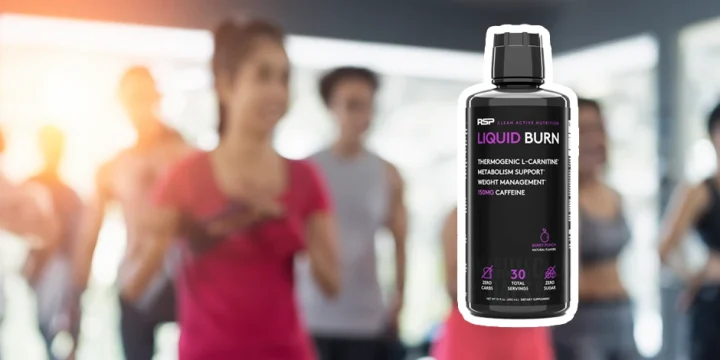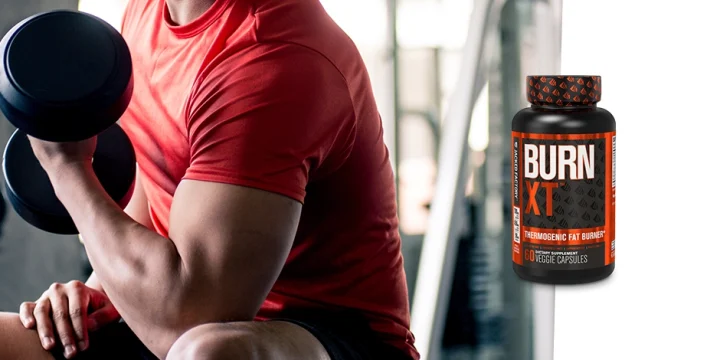While working as a fitness trainer for many years, I've encountered many clients who can't resist eating foods high in carbohydrates despite wanting to lose weight.
Quick Summary
- To burn off carbs faster, maintain a balanced diet, engage in high-intensity workouts, and take sugar-free protein powder before exercising.
- The benefits of burning carbs include; reducing bad cholesterol levels, reducing blood sugar levels, and reducing the risks of developing cardiovascular diseases, and diabetes.
- Experts recommend high-intensity workouts of about 90 minutes at 80–95 percent of your maximum heart rate.
- From my professional experience, a consistent balance of diet and exercise is the key to effectively burning carbs and maintaining a healthy weight
Three Natural Ways to Burn Carbs Fast

The carbs in our food are naturally burned off by the activities we do each day.
When we don't use all of the glucose from our diet due to lack of exercise, we store excess glucose in our liver and muscles as glycogen, as shown by reports by the University of Nottingham [1].
In my experience as a nutritionist, I've found that as we eat more carbohydrates and fail to burn them, glycogen storage can reach a threshold, and any extra glucose that can't be stored as glycogen is turned into body fat.
This process is called de novo lipogenesis (DNL), and if uncontrolled, it can lead to obesity, as well as heart and liver problems, as per reports by the University of California Berkeley [2].
Therefore, it's critical to utilize carbohydrates quickly, and here are three ways I found to do it:
Maintain a Balanced Nutrition
A high-carb diet trains the body to use carbs as the main fuel source, but including proteins and healthy fats enhances carbohydrate utilization for energy.
Research from the National Library of Medicine shows that whole-food carbs, especially fiber-rich ones like whole grains and sweet potatoes, improve carb metabolism [3]. A balanced diet with whole grains, lean proteins, and healthy fats can efficiently aid in fat loss and energy levels.
My clients have seen notable energy and midsection fat loss improvements by adopting this balanced approach. Moreover, a Science Daily study indicates that healthy fats boost carb utilization, providing more energy and aiding nutrient absorption for high-intensity activities and overall health [4].
Perform High-Intensity Exercise

These exercises can help the body burn glucose, the preferred initial fuel source during energy expenditure. To target stored carbs or glycogen, intense aerobic activities like prolonged cardio or high-intensity interval training (HIIT) are recommended, as per the Mayo Clinic [5].
Increasing muscle lifting intensity with more reps and heavier weights can also speed up glycogen depletion, according to the National Library of Medicine [6].
Honor Health suggests doing high-intensity workouts for 90 minutes at 80–95% of your maximum heart rate [7].
From my experience, clients incorporating HIIT have experienced more efficient carb burning, increased energy, and motivation, with notable reductions in belly fat, proving its effectiveness.
Post you may like: How To Lose 2 Pounds A Week

Take Sugar-Free Protein Powders before Working Out
Using high-sugar pre-workouts can hinder the body from burning stored glycogen during exercise. However, skipping these enhancers might affect performance.
Unsweetened, sugar-free protein powders as pre-exercise supplements have shown benefits; clients using these reported increased workout intensity and better recovery, aiding in efficient carb burning.
According to reports from the National Institutes of Health, pre-workout supplements are also beneficial because they increase your energy, strength, and endurance, ultimately boosting your energy expenditure during workouts [8].
Additionally, exploring metabolism-hacking techniques, such as using specific supplements such as fat burners or adopting certain dietary habits, can further enhance your body's ability to efficiently burn carbs and fats.
What Are the Benefits of Burning Carbs?

Burning carbs through exercise offers multiple benefits, including lower blood sugar and cholesterol levels, reduced diabetes and cardiovascular disease risk, and weight loss.
I've seen clients, including one who significantly improved blood sugar and cardiovascular health, benefit from a carb-burning exercise regimen.
“Movement is medicine.”
- Colleen Louw, PT, American Physical Therapy Association (APTA)
The American Heart Association found that glucose metabolism and cholesterol improve together with weight loss [9], indicating that reduced blood glucose can lower cholesterol and heart disease risk. Burning carbs also releases fatty acids in cells, speeding up fat breakdown and using it for energy, leading to weight loss.
Does It Have Any Adverse Effects?
Burning off carbs can have adverse effects on people with medical conditions such as diabetes and hypoglycemia because these conditions can affect how your body uses and breaks down carbohydrates.
People with these conditions should talk to a professional nutritionist or a registered dietitian for assistance with meal planning and balancing the amount of carbs they eat with how much energy they use.
FAQs
Do You Burn Carbs When You Sleep?
Yes, you burn off carbs when you sleep because glucose metabolism increases as energy is expended to allow the body's vital organs to function properly. This also occurs during rapid eye movement (REM) sleep, which occurs typically 90 minutes after falling asleep, where brain activity, blood pressure, and respiration increase.
Does Running Burn Fat or Carbs?
Running can burn fat or carbs because it is considered one of the aerobic exercises that effectively uses but also creates energy, as many people feel more energized after a short jog. Furthermore, 30 minutes of slow, low-intensity running is more effective at encouraging your body to burn more calories from body fat.
References:
- https://www.nottingham.ac.uk/nmp/sonet/rlos/bioproc/liverphysiology/page_three.html
- https://news.berkeley.edu/2012/12/06/gene-converts-carbs-to-fat/
- https://www.ncbi.nlm.nih.gov/pmc/articles/PMC3257631/
- https://www.sciencedaily.com/releases/2017/10/171009124026.htm
- https://www.mayoclinic.org/healthy-lifestyle/weight-loss/in-depth/metabolism/art-20046508
- https://www.ncbi.nlm.nih.gov/pmc/articles/PMC6019055/
- https://www.honorhealth.com/healthy-living/how-hiit-your-exercise-targets
- https://www.ncbi.nlm.nih.gov/pmc/articles/PMC4190923/
- https://www.ahajournals.org/doi/10.1161/01.atv.0000087145.71160.15
About The Author
You May Also Like






